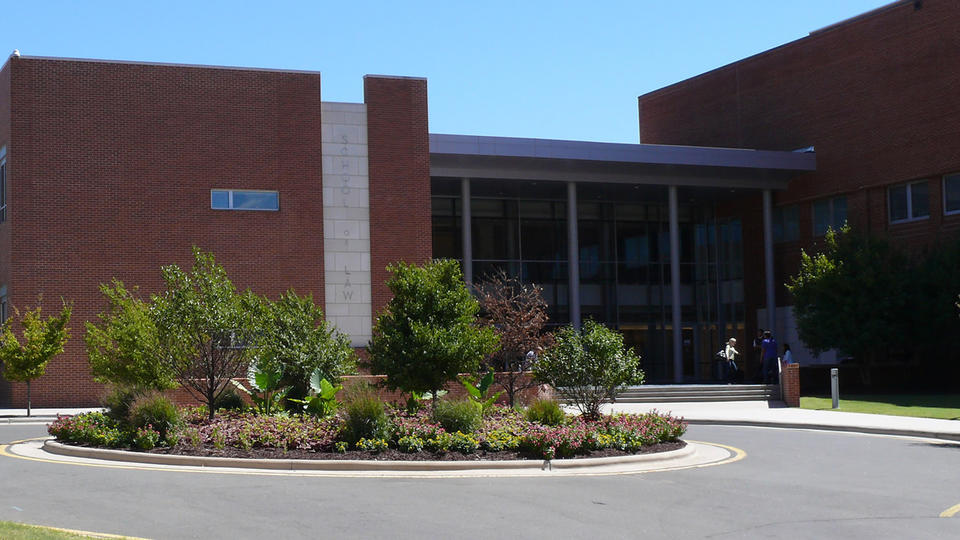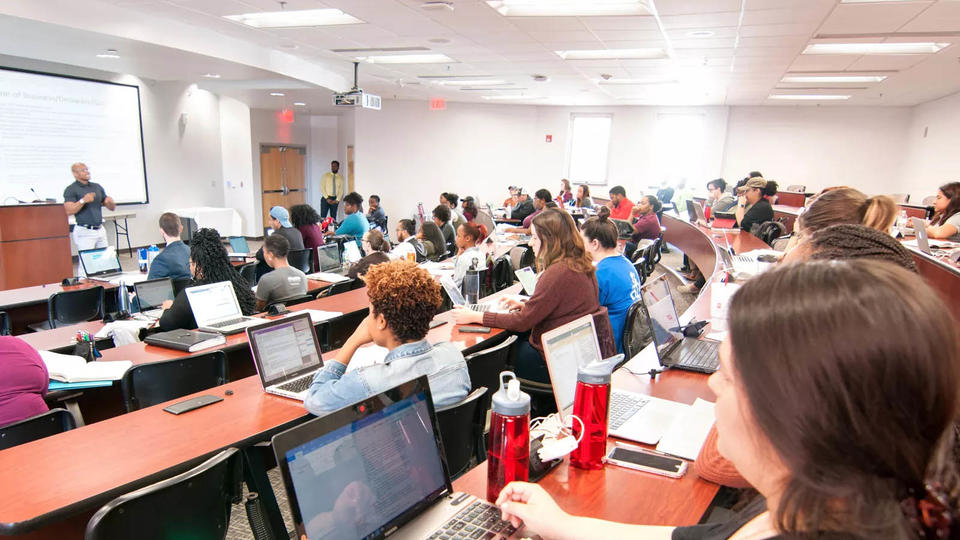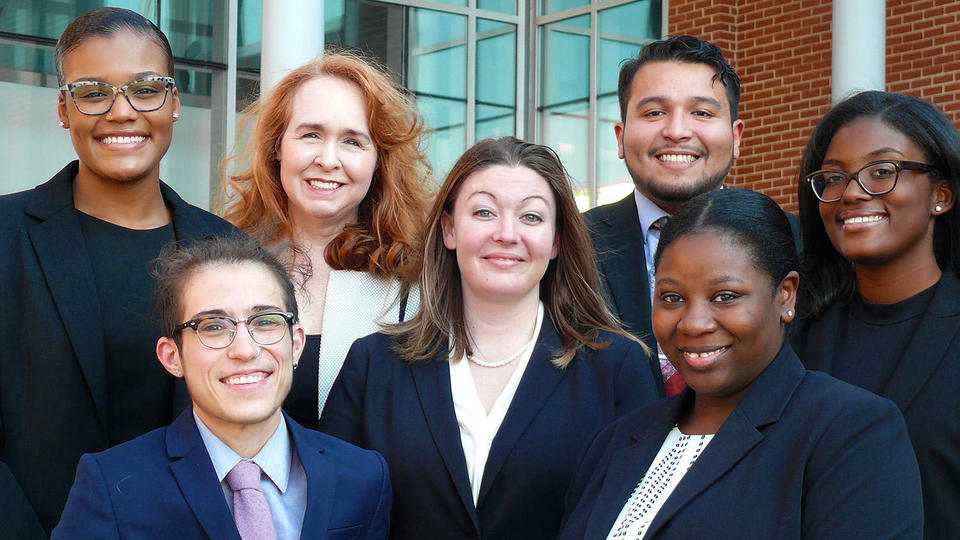NCCU School of Law
We empower our graduates to become highly competent and socially responsible lawyers and leaders committed to public service and to meeting the needs of underserved communities.
We are proud to be a law school that trains attorneys who become leaders and serve their various communities around the state, country, and world. Our commitment to service is evidenced by the many opportunities we provide our current students, and we know that visiting us is the best way to learn about the many experiences we provide students and determine whether our school is the right fit for you.
We empower our graduates to become highly competent and socially responsible lawyers and leaders committed to public service and to meeting the needs of underserved communities.

Would you like to enjoy a virtual tour of the School of Law? Please enjoy this short video to get your first impressions.

Experience the sloping hills and verdant green of North Carolina Central University. Discover special places on campus — including our classrooms, laboratories, residence halls and more. We have various tours available for groups and small parties.
The aim of the Legal Legends Oral History Video Project is to preserve the history and institutional knowledge of the Law School through a series of video and audio recordings featuring current and retired law faculty.
The North Carolina General Assembly enacted House Bill 18 on March 1, 1939, paving the way for a new generation of black lawyers in North Carolina. The bill, authorizing a law school at North Carolina College for Negroes, (now North Carolina Central University) was passed 25 years after Shaw University, in Raleigh, N.C., closed its law school in 1914, a move that left no in-state option for blacks to receive a formal education in law.
The Legal Eagle Review on WNCU 90.7 FM is an informative and thought-provoking weekly show covering legal issues affecting everyday people. Irving Joyner and April Dawson, law professors at North Carolina Central University School of Law, host this one-hour program.

All law schools are required to publicly disclose the consumer information linked below in accordance with the American Bar Association’s Standard 509.

North Carolina Central University is committed to educational opportunities and does not discriminate against applicants, students, or employees based on race, color, national origin, religion, gender, age, veteran’s status, sexual orientation or identity, or disability.
Today, Durham is a colorful, creative, and entrepreneurial community and the stately home of Research Triangle Park, as well as Duke and North Carolina Central Universities. Credit: Chris Barron/Durham Convention and Visitors Bureau.